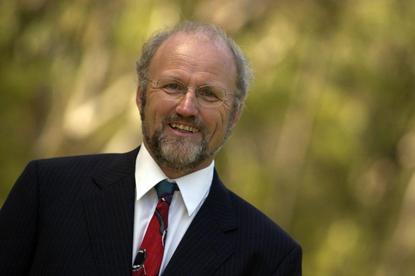Paul Budde weighs in on Morrow’s departure
- 04 April, 2018 16:31

Telecommunications analyst, Paul Budde
Bill Morrow is leaving NBN Co at perhaps the worst time: just as the 2019 federal election looms, according to prominent telecommunications analyst Paul Budde.
“With a new government, there would be an opportunity for a fresh start for the NBN with a clear vision on what the national social and economic value of the infrastructure is for our country,” Budde said on Wednesday.
Morrow announced he will quit his position in 2018, a year before the national broadband network is due for completion in 2020.
In a recent submission, Budde said a new business and investment model could be developed based on one of two choices: write off half of the value of the NBN and privatise the project with a new investor/operator; or finish the job properly with fibre-to-the-home and even fibre to the 5G mobile tower. He suggested the government find an extra $30 billion to finish it off before privatisation.
“It would be important for the incoming CEO to know what the future direction of the NBN looks like,” Budde said. “Another option would be to just fill the position temporarily until there is more clarity over its future.
“A third option would be to appoint somebody who makes an inventory of where we are now and make recommendations to the government regarding the future of the NBN. If the latter is the case – for the sake of the country – let’s hope that this will be a bi-partisan decision otherwise we could possibly start all over again after the next elections.”
Meanwhile, Budde said that when Morrow accepted the CEO role in 2014, he went into this situation with his “eyes wide open”, and followed the political line that the government prescribed rather than going for what would have been the best technical solution.
Several years earlier, there had been widespread support from voters and the business community for a nationwide fibre-to-the-home network.
“The project is riddled with both technical and financial problems and is not delivering what the people expect of a modern digital infrastructure. It was sad to see that Bill at several occasions downplayed these expectations.
“Predictions of the problems the network would face by using old copper infrastructure and old HFC infrastructure have all eventuated and are causing a lot of negativity in the market. Bill would have known this from the very start and obviously accepted such an outcome," Budde said.
Budde added that it can be argued that Morrow should have been more upfront about the problems that were inherently linked to the political task that he was given, but instead he followed the political party line on this.
“There is still great uncertainty about the future of the NBN. If the current infrastructure as it will be completed in 2020 remains the end solution, its value will be only half of what it has cost so far as at least another $30 billion is needed to finish the job properly. Without any clarity on this situation, it would be very difficult for any serious candidate to take on the job after Bill has left later this year.”
Follow CIO Australia on Twitter and Like us on Facebook… Twitter: @CIO_Australia, Facebook: CIO Australia, or take part in the CIO conversation on LinkedIn: CIO Australia
Follow Byron Connolly on Twitter: @ByronConnolly

